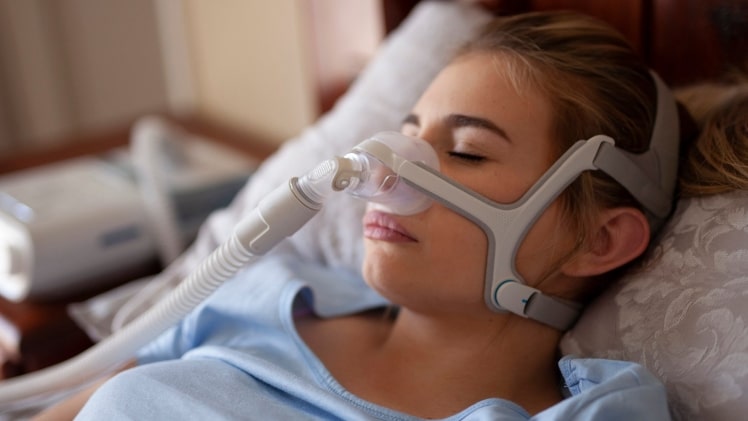Sleep apnea is a condition in which breathing is interrupted during sleep. It can happen as many as 30 times an hour, and sometimes more than 100. You may often feel exhausted when you wake up, even though you slept for 8 hours or more. You may also experience headaches and brain fog. But there is good news: Sleep apnea can be treated with a CPAP machine device. In Valhalla, NY, you’ll find reliable centers willing to help you deal with the condition. Target the finest Valhalla sleep apnea specialists as it assures quality assistance.
What is Sleep Apnea?
Obstructive sleep apnea (OSA) is a medical disorder in which breathing repeatedly stops and starts during sleep due to the soft tissues in the throat relaxing. Usually, about every one to two minutes, this relaxation of airway muscles causes breathing to stop for 10 seconds or so.
These pauses in breathing, called ʻapneasʼ, can cause a reduction in blood oxygen levels. In addition, when breathing restarts, the body’s natural arousal mechanisms kick in to increase heart rate and blood pressure to restore oxygen levels.
What Are the Symptoms of Sleep Apnea?
The main symptoms of obstructive sleep apnea are snoring and excessive daytime sleepiness. Other symptoms may include:
- Headaches in the morning
- Dry mouth or a sore throat when waking up
- Trouble staying asleep
- Insomnia
- Waking up feeling tired
- Feeling irritable, stressed, or depressed
- Difficulty paying attention, focusing, or remembering things
Diagnosis of Sleep Apnea
A physician should evaluate a person suspected of having obstructive sleep apnea to assess symptoms, determine the severity level, and rule out other possible causes. The diagnosis will involve an examination, including listening to the chest with a stethoscope for unusual sounds, checking heart rate and blood pressure, observing any symptoms, and reviewing medical history.
How is Sleep Apnea Treated?
The most common treatment for obstructive sleep apnea is using a machine called a CPAP (continuous positive airway pressure) machine. This device delivers a steady stream of air through a mask that fits over the nose and mouth, which keeps the airway open and prevents pauses in breathing during the night. It is often used in conjunction with lifestyle changes.
Some people use dental devices that hold the jaw forward, preventing the collapse of tissues and keeping airways open. They are effective in about half of men and women who have sleep apnea.
Several surgical procedures are available to treat obstructive sleep apnea, although these are not typically recommended. They include nasal surgery, uvulopalatopharyngoplasty (UPPP), maxillomandibular advancement.
Symptoms of sleep apnea can be managed with lifestyle changes. These may include losing excess weight, avoiding alcohol before bedtime, or sleeping on one’s side instead of lying flat on the back. If snoring is a problem, avoiding sleeping on the back may help.
Benefits of Sleep Apnea Treatment
The most common benefit of sleep apnea is improved sleep quality. People with sleep apnea treatment often report feeling more rested and having more energy during the day. Treatment can also help to improve mood, reduce stress levels, and improve attention and focus. In some cases, it may also help lower blood pressure or cholesterol levels.
If you are struggling with sleep apnea, it may be time to consult your physician. Many treatment options are available for this disorder that can improve the quality of life and reduce the symptoms associated with OSA. One such option is a CPAP machine which delivers air through a mask worn on the face at night to ensure uninterrupted breathing throughout sleep.

